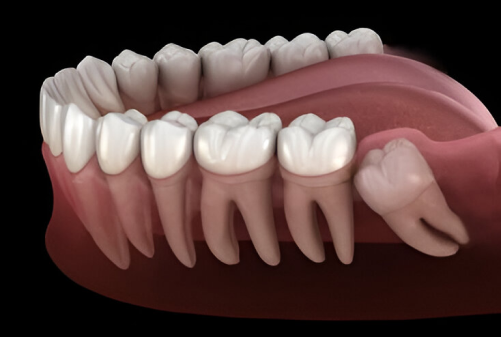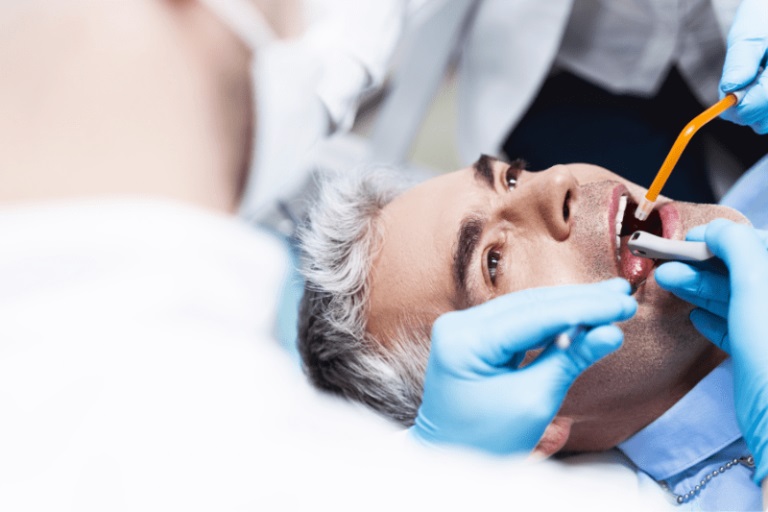Does Wisdom Teeth Cause Pain?

Wisdom teeth, also known as third molars, are the last teeth to erupt in the mouth, typically between the ages of 17 and 25. They can sometimes cause problems such as impaction, overcrowding, and pain. If you are experiencing any of these symptoms, it is important to see a dentist to discuss whether wisdom teeth removal is right for you.
Why might I need my wisdom teeth removed?
There are several reasons why your dentist might recommend wisdom teeth removal, including
- Impaction: If your wisdom teeth are trapped beneath the gum tissue or bone (impacted), they can cause pain, infection, and damage to nearby teeth.
- Crowding: Wisdom teeth can crowd other teeth, leading to misalignment and bite problems.
- Damage to other teeth: Impacted wisdom teeth can put pressure on nearby teeth, causing them to crack or chip.
- Gum disease: Impacted wisdom teeth can make it difficult to clean your teeth properly, increasing your risk of gum disease.
- Cysts or tumours: In rare cases, wisdom teeth can be associated with the development of cysts or tumours.
Our Procedure
- Step 1: Consultation: Our dental experts will examine your teeth and gums, take X-rays, and discuss your concerns to determine the best approach for your wisdom teeth removal.
- Step 2: Comfort: Choose from various anesthesia options, including local anesthesia, nitrous oxide, IV sedation, or general anesthesia, to ensure a relaxed and pain-free experience.
- Step 3: Teeth Removal: Our skilled surgeons use precise techniques to access and carefully extract your wisdom teeth, minimizing discomfort and ensuring a smooth procedure.
- Step 4: Infection prevention: We meticulously clean the surgical site to prevent infection and promote optimal healing.
Recovery Process after Wisdom Tooth Extraction
Most people experience some discomfort, swelling, and bruising after wisdom tooth removal. This is normal and typically subsides within a few days. We will provide you with specific instructions on how to care for your mouth after surgery, including
- Managing pain: Over-the-counter pain relievers or prescription medication can help manage discomfort.
- Reducing swelling: Apply ice packs to your cheek to reduce swelling.
- Preventing infection: Gently rinse your mouth with salt water and brush and floss your teeth carefully.
- Avoiding certain foods and activities: Avoid hard, chewy, or spicy foods, smoking, and strenuous activity for a few days.

Benefits of Wisdom Teeth Removal
- Prevents future complications: Removing impacted wisdom teeth can help prevent future pain, infection, and damage to other teeth.
- Improves oral health: By eliminating the risk of impaction and its associated problems, wisdom teeth removal can contribute to better overall oral health.
- Improves bite and alignment: Removing wisdom teeth can create more space for other teeth, potentially improving bite and alignment.











_aburas_dental.jpg)
_aburas_dental.jpg)



